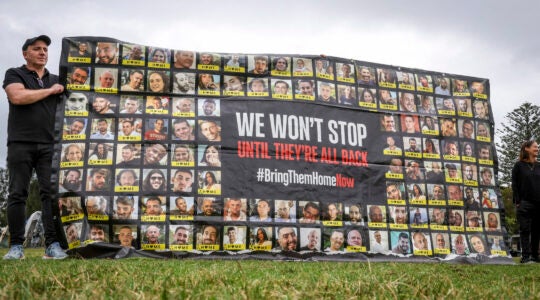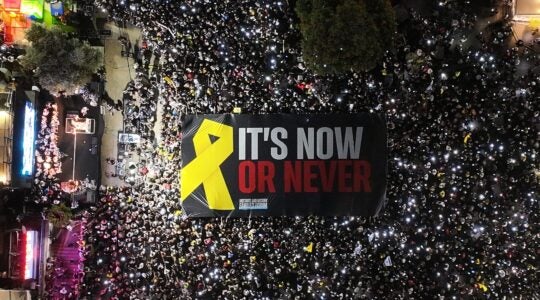WASHINGTON (JTA) – Donald Trump’s choice for secretary of defense said at confirmation hearings that Tel Aviv is Israel’s capital, although the president-elect has said he intends to move the U.S. Embassy to Jerusalem.
“The capital of Israel that I go to, sir, is Tel Aviv, sir, because that’s where all their government people are,” James Mattis, a retired four-star general, told the U.S. Senate hearing on Thursday morning in response to questions about policy on Israel.
Mattis made clear he was referring to current U.S. policy, and that in any case which city is the capital is not in his bailiwick as defense secretary nominee.
“I would defer to the nominee of secretary of state on that, sir,” he said.
Trump’s transition team has not cited any timetable for moving the embassy to Jerusalem, Israel’s stated capital.
Meanwhile, Mattis and Rex Tillerson, the Exxon CEO under consideration for secretary of state, both said they were unhappy with the Iran nuclear deal but suggested they would not scrap it. Tillerson also appeared this week at confirmation hearings.
Mattis was most pronounced in his rejection of a retreat from the deal reached last year between Iran and six major powers led by the United States exchanging sanctions relief for a nuclear rollback deal.
“I think it is an imperfect arms control agreement — it’s not a friendship treaty,” Mattis said, responding to Sen. Jack Reed, the top Democrat on the Senate’s Armed Services Committee and a backer of the deal. “But when America gives her word, we have to live up to it and work with our allies.”
Tillerson in his testimony sought a “full review” of the agreement and stronger compliance from Iran, but did not call for killing it. At times it appeared as if he was not fully versed with the terms of the deal.
Compliance, he said, according to the Los Angeles Times, “means no nuclear enrichment in Iran, no storing of nuclear materials in Iran.” In fact, under the deal, Iran is permitted low-grade enrichment of uranium.
It’s not clear yet where Trump stands on the deal. He had suggested at times during his campaigning that he would pull the United States out of the pact; at other times said he wanted to review it.
President Barack Obama said he considers the deal one of his signature foreign policy successes. He said it cuts off a path to a nuclear weapon and makes Israel and other regional U.S. allies safer. Israeli Prime Minister Benjamin Netanyahu and the centrist and right wing pro-Israel communities, as well as many congressional Republicans, say the deal paves the way for a nuclear weapon when some of its restrictions lapse in 10-15 years.
Tillerson in his testimony criticized the Obama administration’s Israel policy, including recent tensions over the U.S. decision to allow through the U.N. Security Council an anti-settlements resolution.
“The president-elect has already made it clear that we’re going to meet our obligations to Israel as the most important ally in the region,” he said.
JTA has documented Jewish history in real-time for over a century. Keep our journalism strong by joining us in supporting independent, award-winning reporting.






